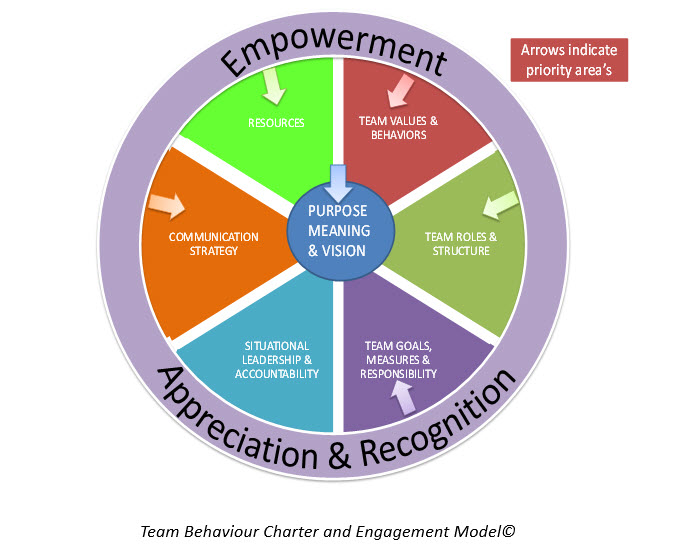Change Management
Change Is Not Just A Constant; It’s A Necessity.
In the dynamic landscape of today’s business world, change is not just a constant; it’s a necessity. Organisations must adapt to evolving market conditions, technological advancements, and customer expectations to remain competitive and relevant. However, the process of change isn’t always smooth sailing. Without proper planning and execution, change initiatives can lead to resistance, confusion, and disruption. This is where effective change management comes into play – a strategic approach that enables organisations to navigate the complexities of change while ensuring a smooth transition for all stakeholders involved.
Organisational Change Management is a structured approach to transitioning individuals, teams and organisational structure, from a current state to a desired future state. This includes both organisational change management processes and individual change management models, which together are used to manage the people, process and performance side of change.

Emergence Change Management Model
The characteristics of the Emergence Change Management model are as follows:
- Clear objectives
- Realistic and limited scope
- Informed awareness to build commitment
- Selection of appropriate systems
- Participation
- Support from key power groups
- Using the existing power structure
- Realistic assessment of proposed changes
- Majority support
- Competent staff to support changes
- Integration of new methods into everyday processes
- Transfer and diffusion of successful innovations to help change occur elsewhere in the organisation
- Contingency modification
Emergence’s Organisational Change Management Process
The following diagrammatical representation provides a broad-based understanding of Emergence’s Organisational Change Management process:

Understanding Change Management
Change management is defined as the structured approach organisations use to prepare, support, and guide individuals, teams, and the entire organisation through the process of change. It involves the careful consideration of people, processes, and systems to minimise resistance, manage potential risks, and maximise the benefits of change.
Key Principles of Change Management
- Clear Vision and Purpose: Every successful change initiative starts with a clear vision and a compelling reason for the change. This vision serves as a guiding light, inspiring employees and stakeholders to understand the ‘why’ behind the change.
- Effective Communication: Open, transparent, and timely communication is paramount during change. Leaders must keep all stakeholders informed about the upcoming changes, addressing concerns, and sharing progress. This fosters a sense of involvement and helps to mitigate uncertainty.
- Engagement and Involvement: Involving employees in the change process is crucial for fostering ownership and commitment. By seeking input, addressing concerns, and involving various stakeholders, organisations will increase the chances of successful implementation.
- Empathy and Support: Recognising that individuals experience change differently, leaders must show empathy and provide the necessary support. This include training, resources, and emotional support to help employees navigate the transition.
- Flexible and Adaptive Approach: Change is often unpredictable, and plans may need to be adjusted along the way. Organisations need to be open to feedback and willing to make necessary modifications to the change strategy.
The Change Management Process
- Assessment and Planning: Before initiating any change, organisations must assess the current state, identify areas that need improvement, and develop a comprehensive plan that outlines the goals, resources, and timeline for the change.
- Communication and Awareness: Clearly communicate the reasons for the change, the benefits it will bring, and how it aligns with the organisation’s overall goals. Create awareness and anticipation among employees and stakeholders.
- Training and Preparation: Equip employees with the necessary skills and knowledge to adapt to the change. Training programs and workshops will build confidence and help mitigate resistance.
- Implementation and Monitoring: Put the change plan into action, closely monitoring progress and addressing any challenges that arise. Regular check-ins and feedback loops are essential to stay on track.
- Feedback and Adjustments: Gather feedback from employees and stakeholders about their experiences with the change. Use this information to make necessary adjustments and improvements to the change strategy.
- Sustaining Change: Once the change is implemented, focus on embedding the new practices and behaviours into the organisation’s culture. Reinforce the change through recognition, rewards, and continuous improvement.
Benefits of Effective Change Management
- Reduced Resistance: Involve employees in the change process and address their concerns. This will minimise their resistance to change and therefore lead to a smoother transition.
- Higher Adoption Rates: When employees understand the benefits of change and are provided with the necessary support and resources, they are more likely to adopt new practices.
- Faster Return on Investment: Well-managed changes will achieve their intended outcomes sooner, resulting in a quicker return on investment for the organisation.
- Improved Employee Morale: A well-executed change management process can enhance employee morale by demonstrating that their opinions and well-being are valued.
- Enhanced Organisational Agility: Organisations that embrace change management are better equipped to adapt to future changes, thus increasing their overall agility and competitiveness.
Conclusion
Change is an inevitable part of organisational growth, and effective change management is the compass that guides organisations through the often-tumultuous waters of transformation. By prioritising clear communication, employee engagement, and strategic planning, organisations can successfully implement changes that drive growth, innovation, and long-term success. Remember, change management isn’t just about managing change – it’s about inspiring and empowering individuals to embrace it.
For more information on how we can assist you with the above mentioned, please contact us via [email protected] or call us via +2711 026 3442. Visit our Facebook page. Read more articles here.
